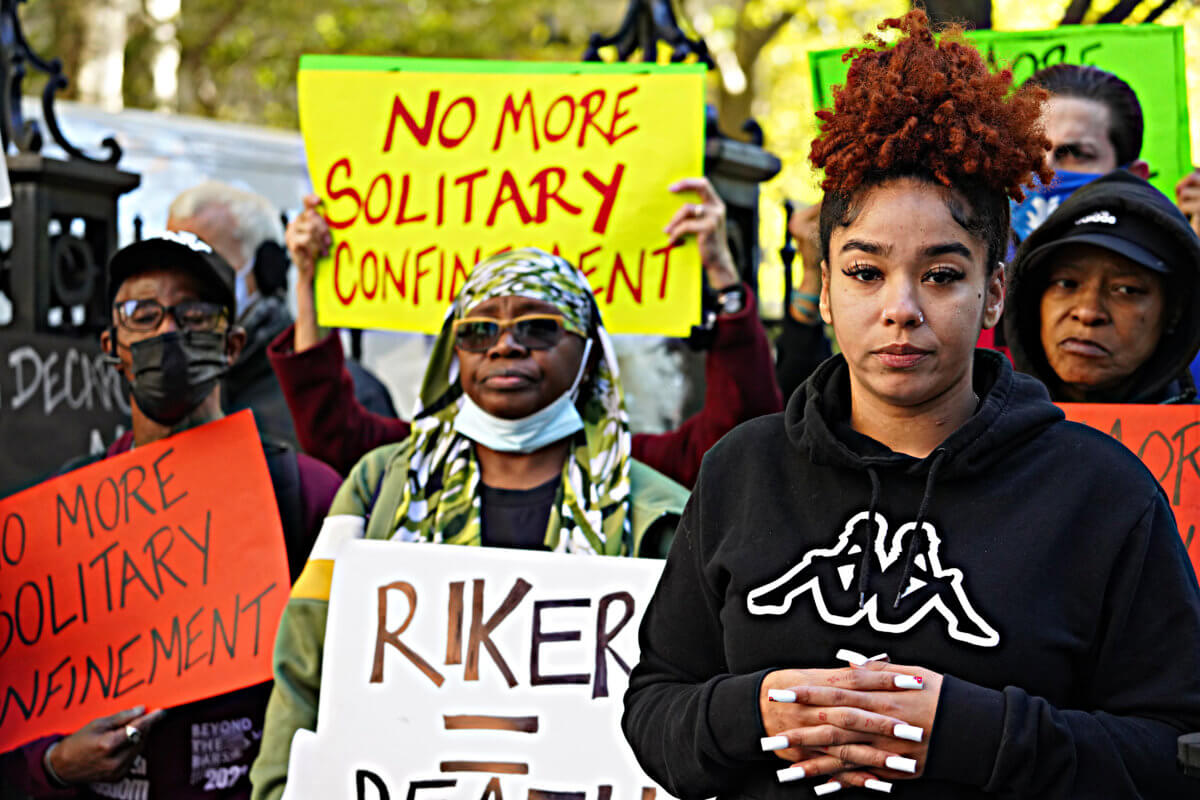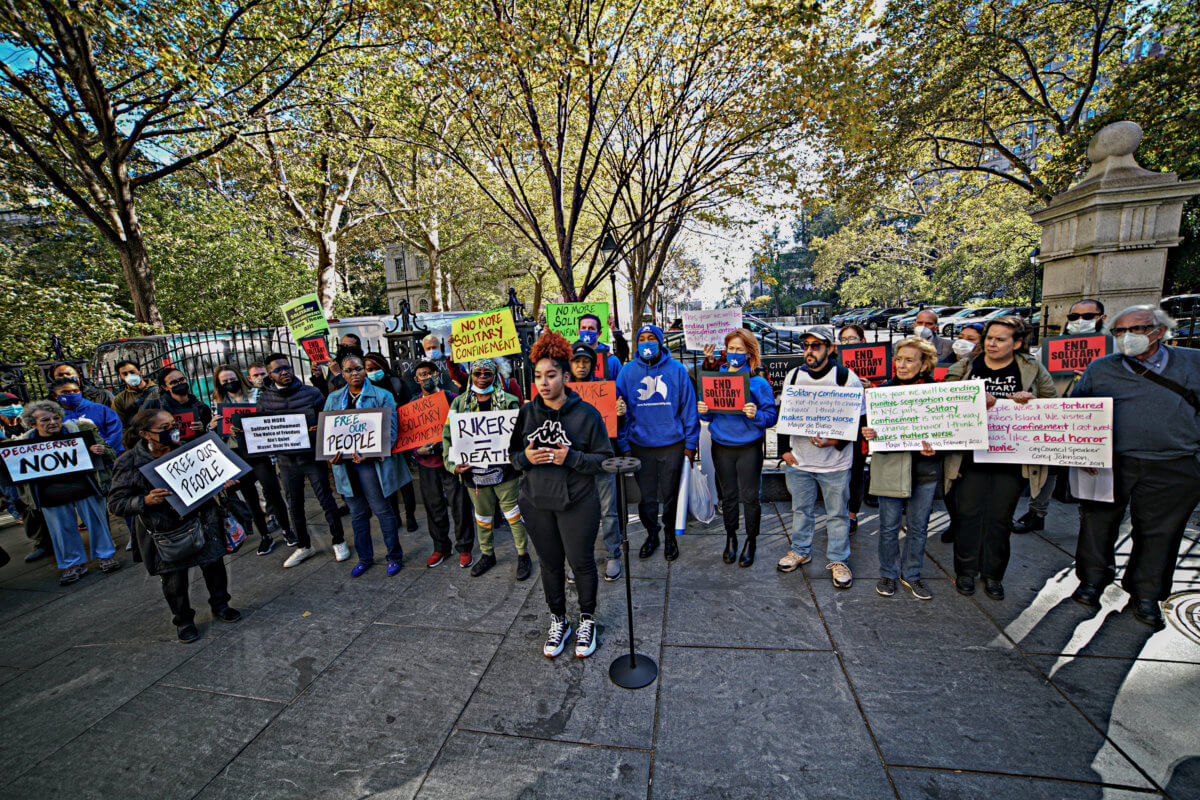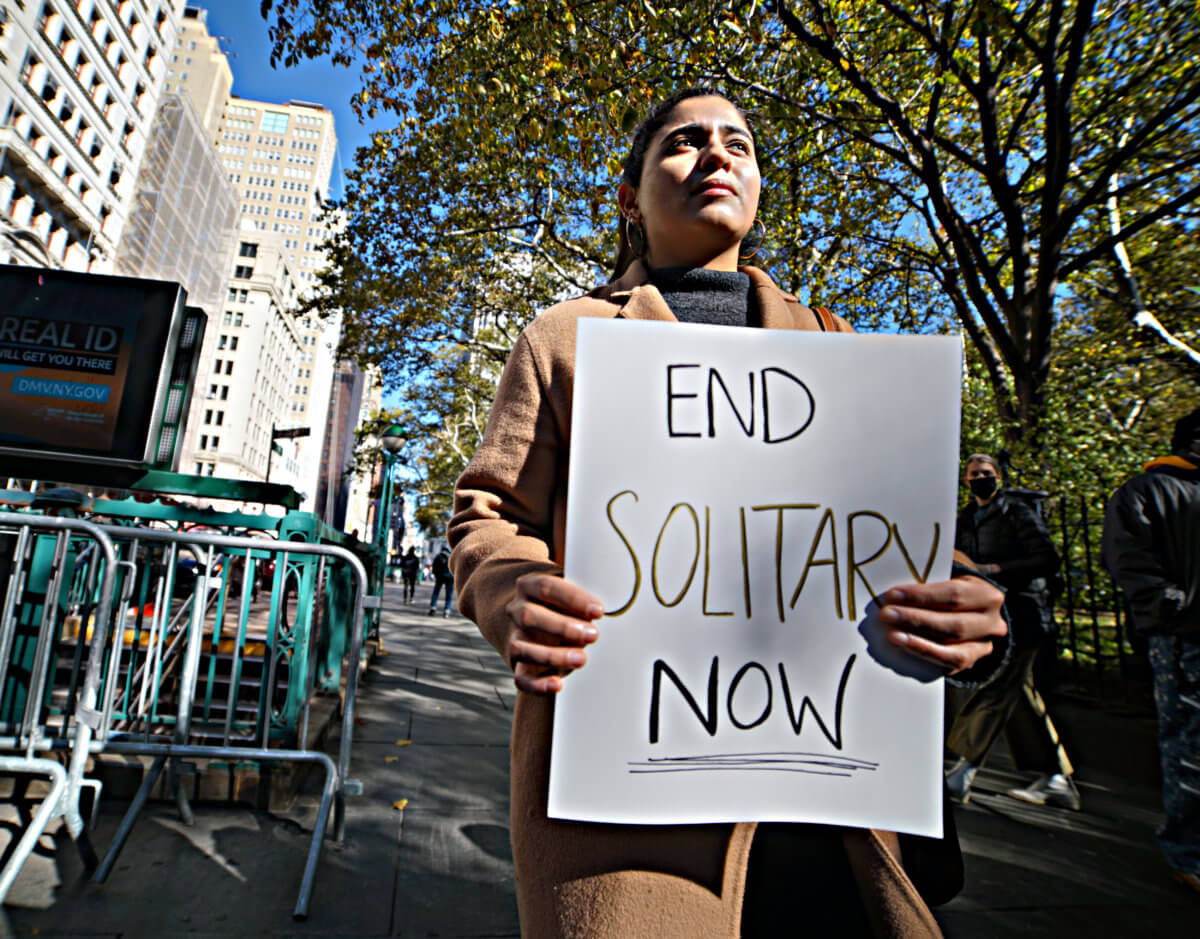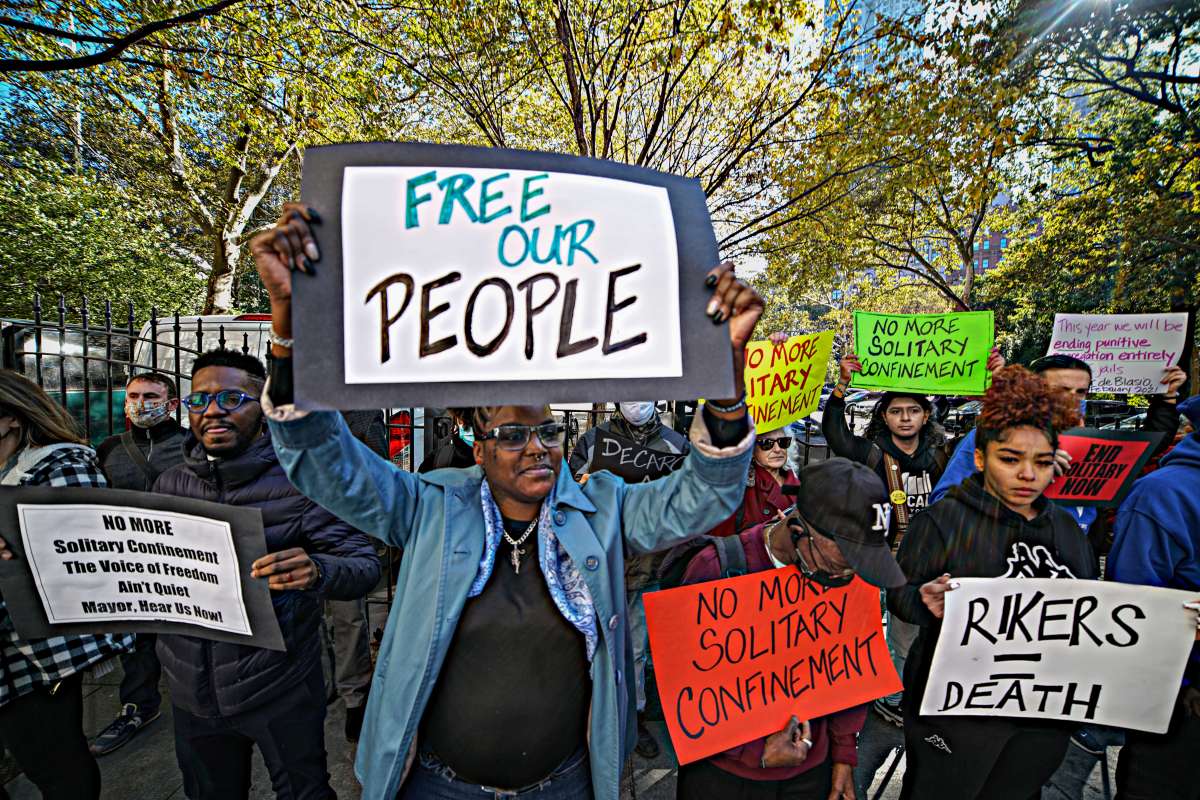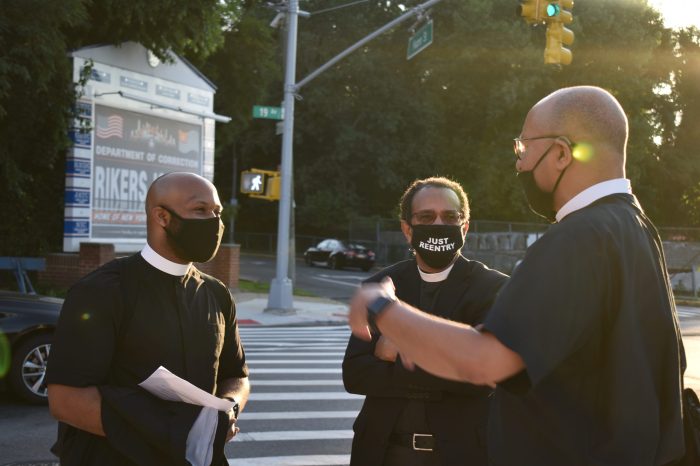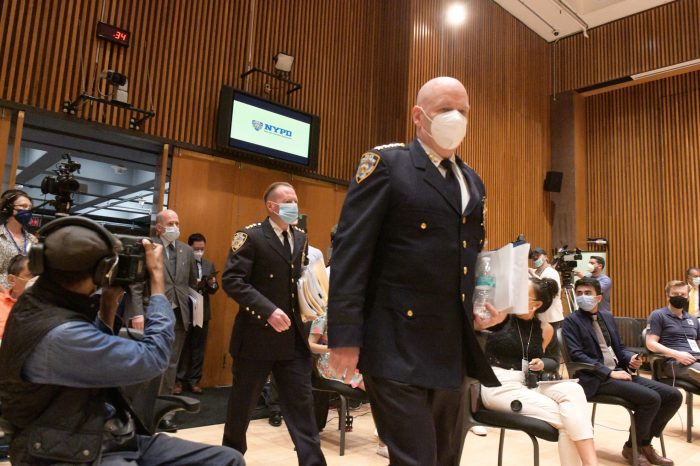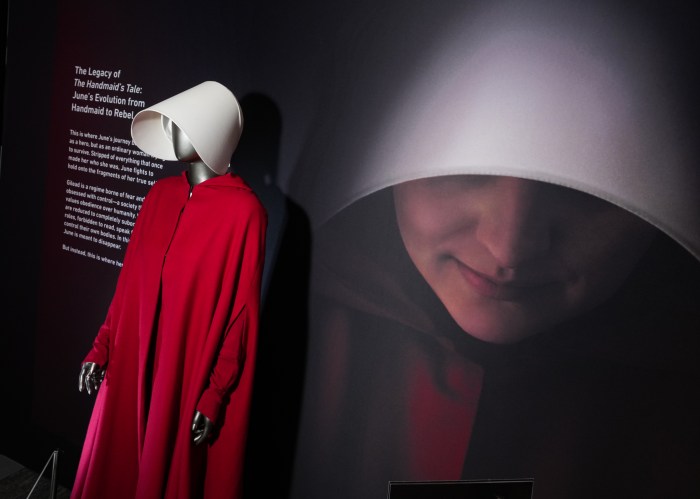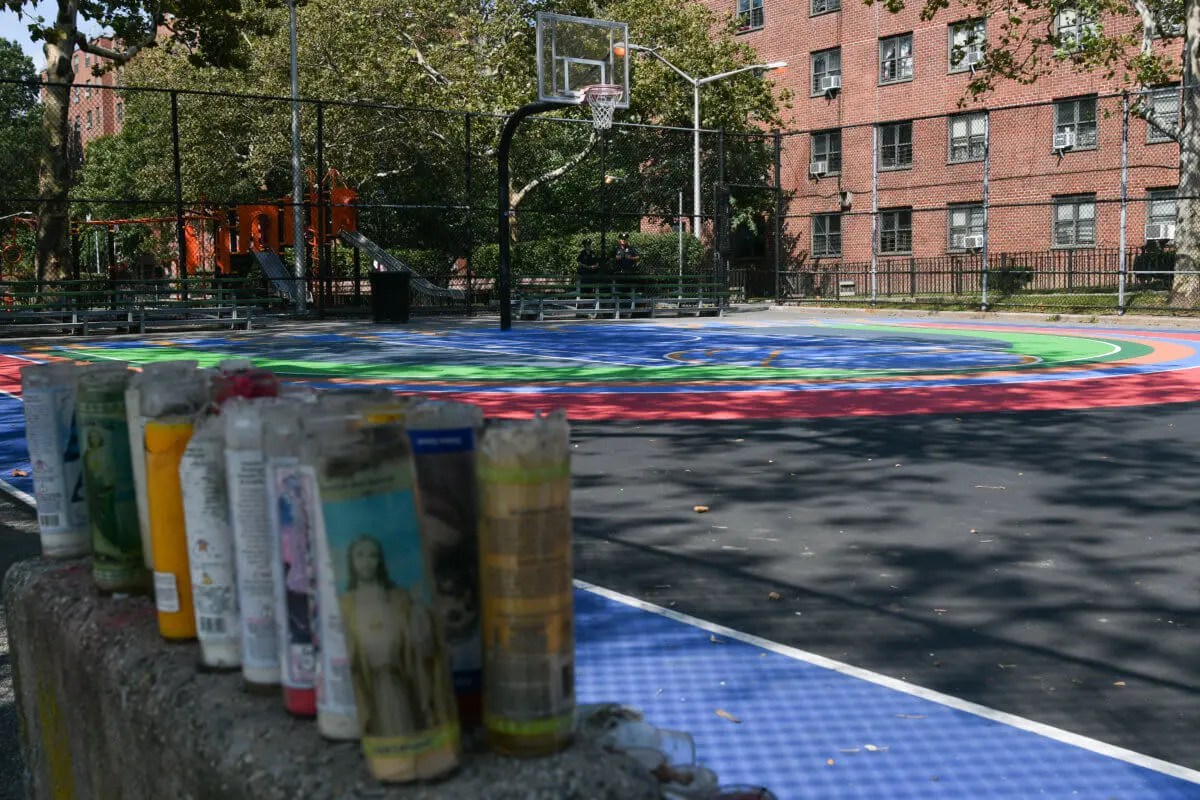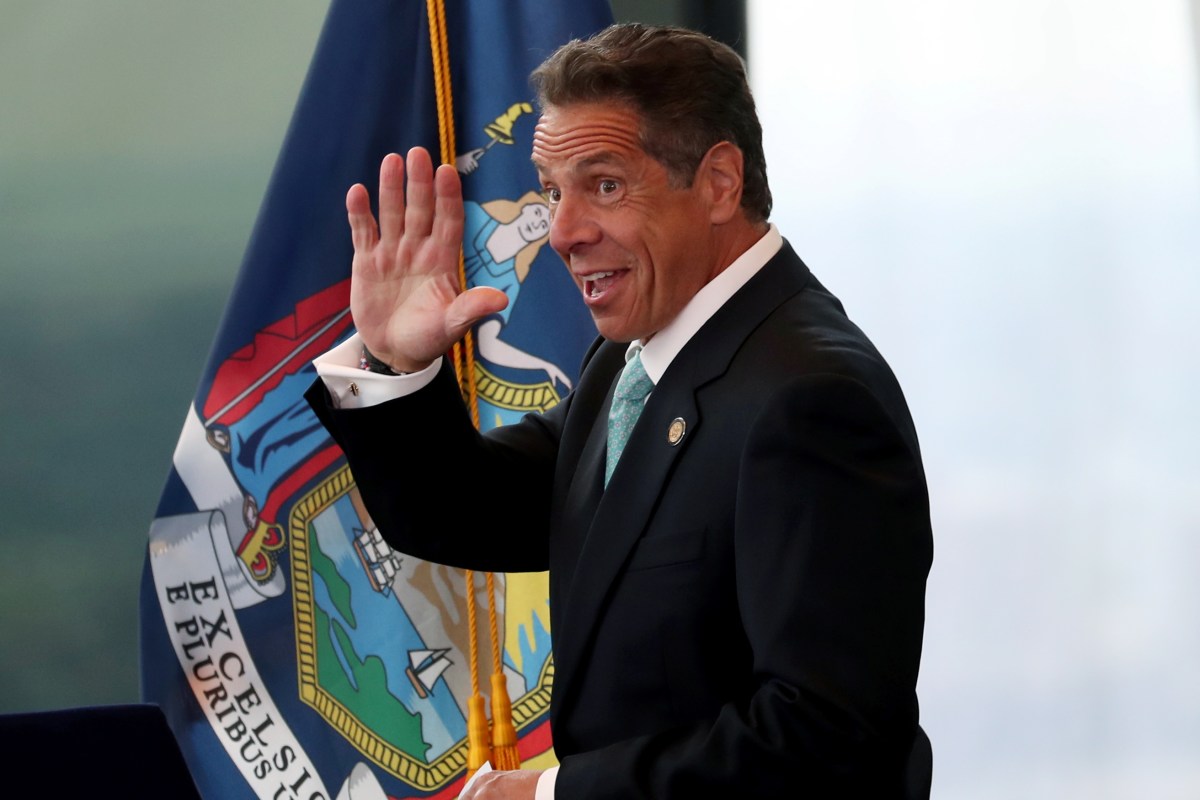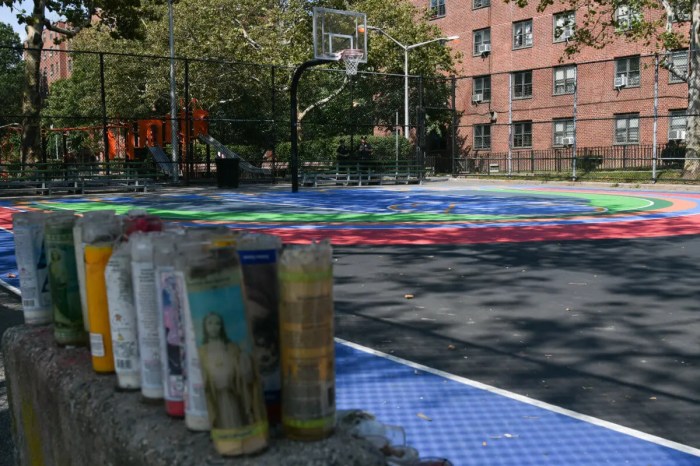Mayor Bill de Blasio had vowed to end solitary confinement on Rikers Island, but critics say the Risk Management Accountability System he imposed barely made a difference. Now, activists claim that de Blasio has allowed the Corrections Department to bring back solitary confinement since the start of this month.
The condemnation came swift and ferocious Monday as survivors of solitary confinement and supporting advocates admonished the mayor for discreetly approving an executive order that reauthorized the use of isolation in the city’s jails.
This latest controversy comes amidst the hellish conditions at Rikers Island that have left 14 incarcerated individuals dead this year. The Nov. 8 rally outside City Hall with a coalition of activist organizations including #HaltSolitary, the Freedom Agenda, and more took local government to task for the seeming lack of compassion.
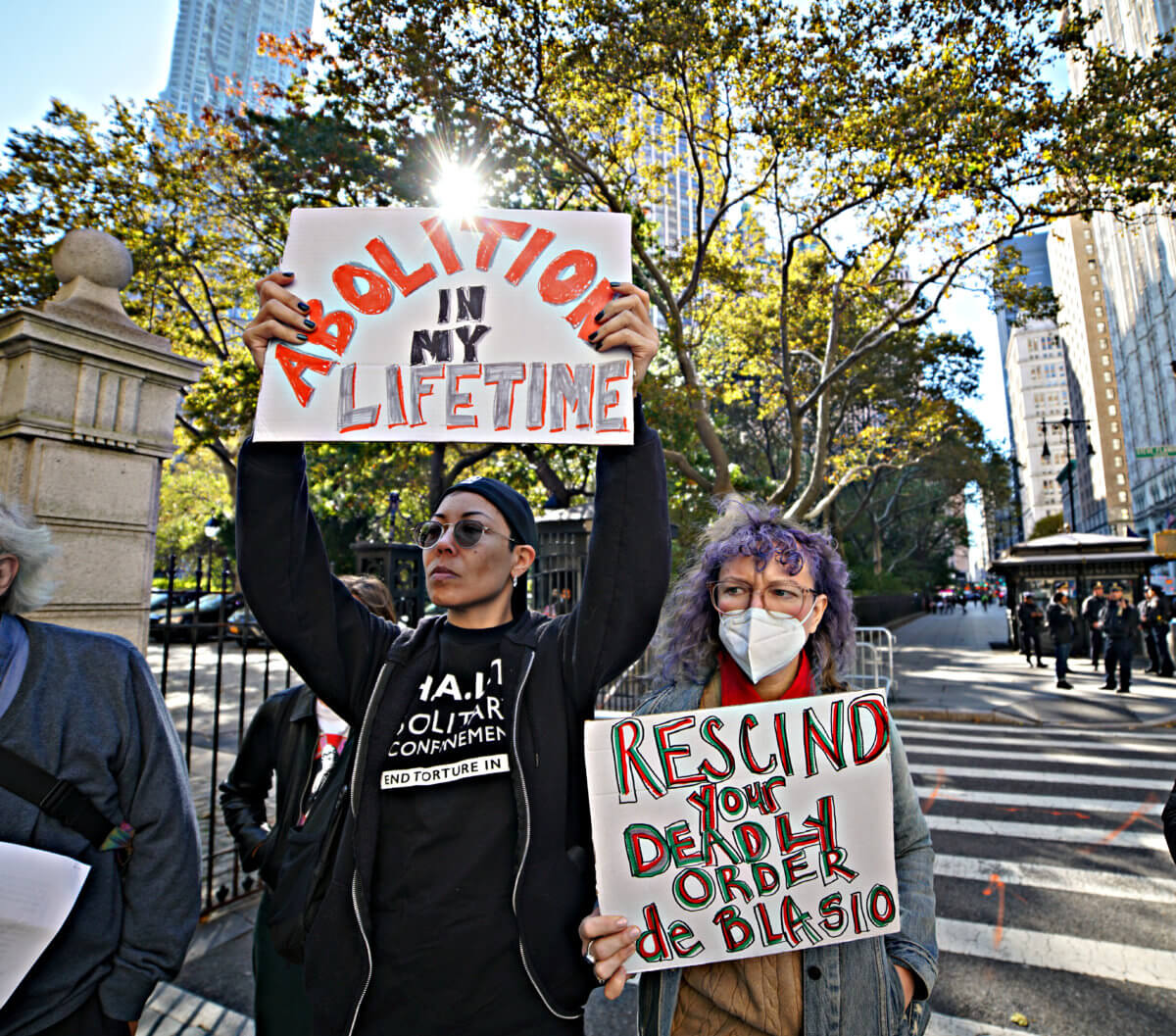
Protesters gathered on Broadway and Murray Street and argued that the order, issued one week earlier, would permit the Department of Correction to again padlock prisoners in isolation for an inordinate amount of time for any reason they deem fit.
“I tell the mayor to rescind this executive order. This order is not a change, the crisis still remains!” Anisah Sabur began, who has spent 61 days in solitary confinement on Rikers Island and is the coordinator for the Coalition for Women Prisoners. “We need to make sure that this mayor and this administration hear us and know that we are living, breathing human beings and there’s no need to cage us like animals. We make mistakes, but we are not those mistakes and we don’t have to live out those mistakes until our last breath.”
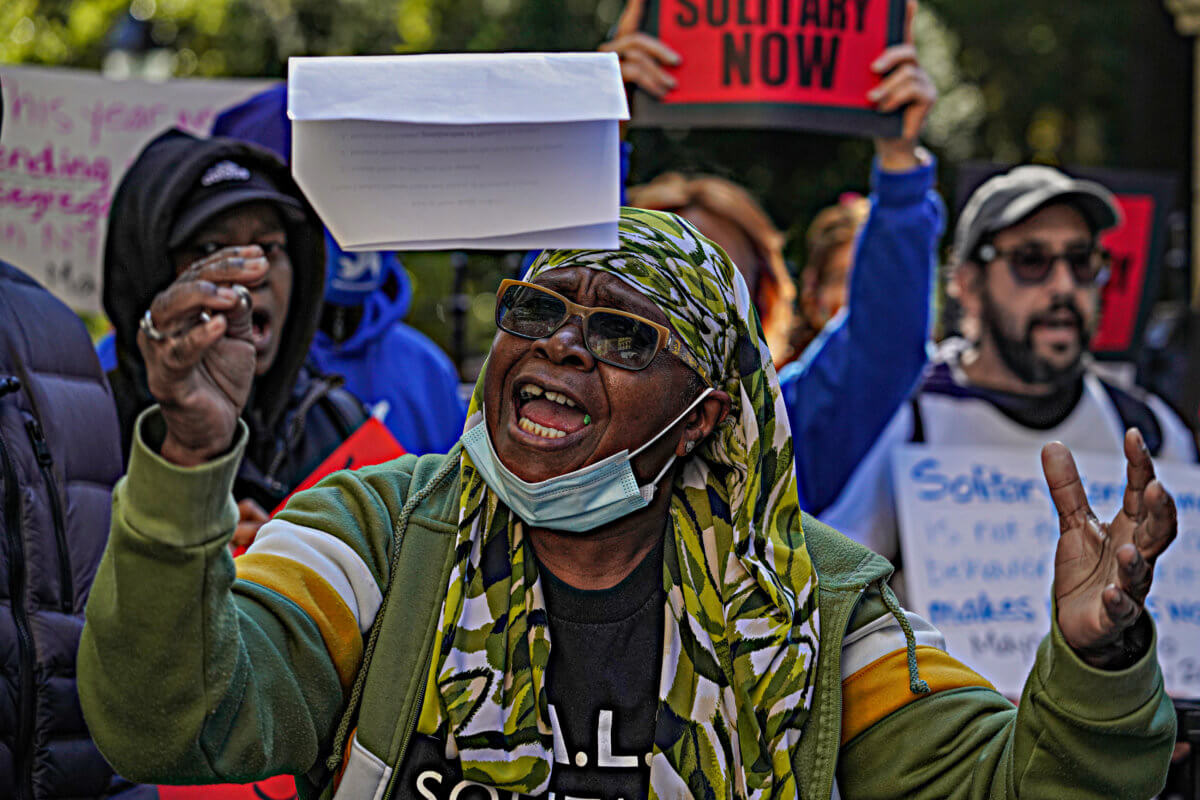
With dozens in support, the coalition attempted to humanize the incarcerated. Those who have experienced the horrors of living in solitary recounted the mistreatment faced on the inside, and the morbid ways in which they attempted to relieve themselves of what they called torture, including attempting suicide. This left some onlookers in disbelief and even welling up with tears of empathy.
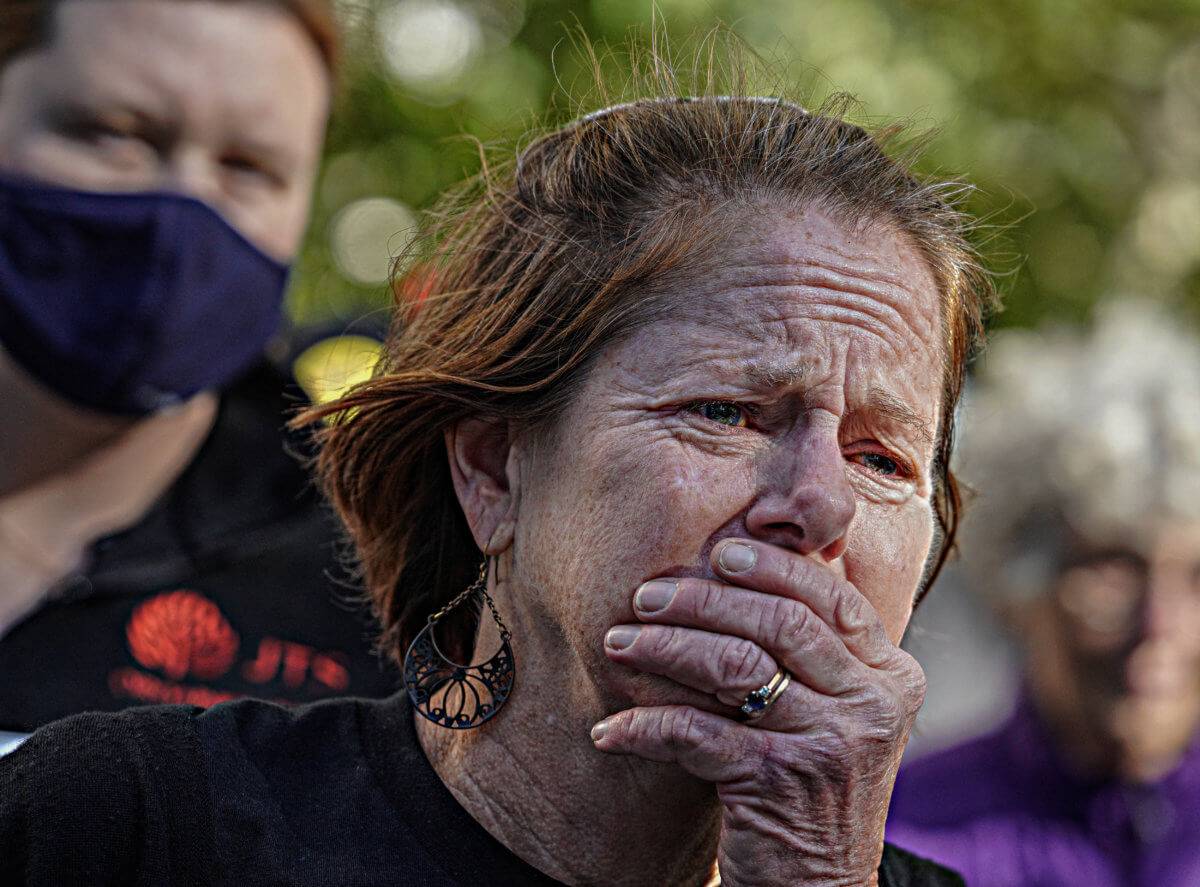
Melania Brown knows this pain all too well. The sister of Layleen Polanco, who died while in solitary confinement on Rikers Island in 2019, Brown has been fighting for a uniformed end to isolation in the prison system ever since.
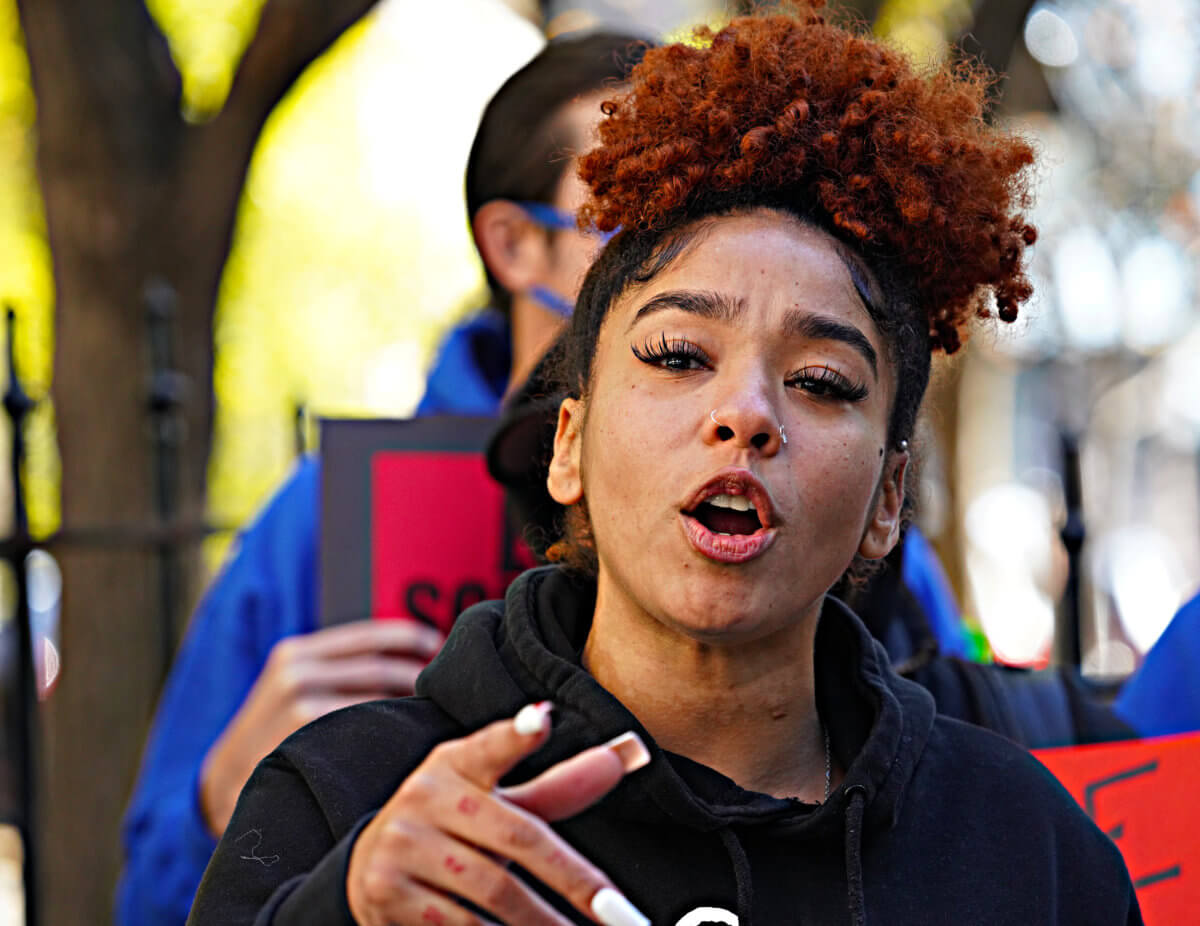
“You made a promise to end solitary confinement and you didn’t do it. Let my people go…. Let them all go,” Brown said in a public message to the mayor. “You can’t take care of them. Now I walk around with my sister wrapped up around my neck in a chain and ashes. I watched my sister go into solitary confinement and I watched her eat her last two meals and come out in a body bag…. And mayor, respectfully, I’m not done with you and I’m not done with Rikers.”
With their demands on the table, the group pleaded with the mayor to “Do the right thing” and prohibit solitary confinement once and for all. The Mayor’s office, however, pushed back on the claim.
Stating that endless is not an accurate term, the Mayor’s office indicated that the executive order does not impact the 14 hour out-of-cell requirement for people in general population housing, and punitive segregation sentences is maxed at 30 days for nearly all infractions, except for assaulting an officer, which can result in a 60-day sentence.
Still, the mayor’s office standbys the claim that there will be meaningful reform by the end of the year.
“At the beginning of this administration, there were about 600 detainees in punitive segregation. Today, there are 68. This revised timeline, made necessary by staffing shortages, does not change our fundamental mission: ending this practice by the end of this year and forging a safer, more humane justice system,” said Mitch Schwartz, a representative for the Mayor’s office, in a statement.
